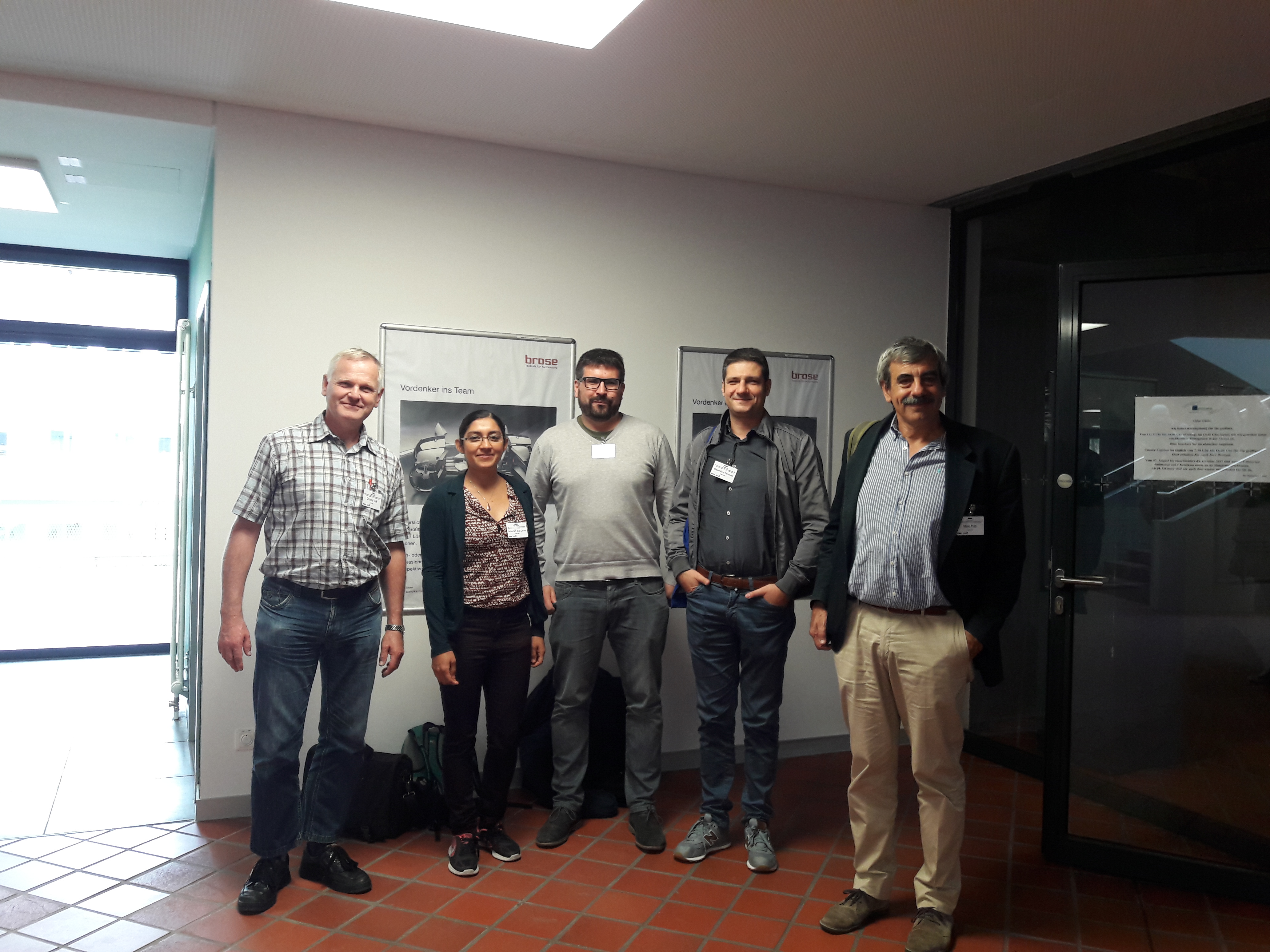A study on deflation techniques and POD methods for the acceleration of
Krylov subspace methods
Jenny Tjan
Site of the project:
TU Delft (collaboration with Padua University, see picture
below)

Supervisors TU Delft: Kees Vuik
and Gabriela Diaz Cortes
start of the project: November 2017
In February 2018 the
Interim Thesis
has appeared
and a
presentation
has been given.
The Master project has been finished in August 2018
by the completion of the
Masters Thesis
and a final
presentation
has been given.
For working address etc. we refer to our
alumnipage.
Summary of the master project:
After discretization of the problem equations describing e.g. reservoir
simulation or groundwater flow problems, we arrive to systems of linear
equations. If the problem is large or ill conditioned, i.e. the matrix
of the system has high condition number, solution of the problem is time
consuming. Therefore, it is necessary to find a way to reduce this time.
The first approach is to use iterative solver, but sometimes, this
approach is not enough. Then, preconditioning techniques have to be
used.
Proper Orthogonal Decomposition (POD)
based on information obtained from the system has been found as
a good approach to obtain an acceleration of iterative methods.
Deflation methods have also been studied with the same purpose, showing
as well, a good performance.
For an optimal performance of the deflation techniques, it is necessary
to find good deflation vectors. If a good selection of these vectors is
made, only a a small increase in the required computing time per
iteration and an important decrease in the number of iterations is
achieved. The capture of a series of snapshots, solutions of the system
with slightly different characteristics, are used to construct a POD
basis.
In this project, we want to explore the similarities and
differences between the use of POD basis preconditioner and as deflation
vectors.
The topics to cover during this MSc thesis are:
- Implementation of POD basis vectors together with deflation
matrices as preconditioners.
- Implementation of POD basis vectors as deflation vectors.
- Comparison of both approaches.
The studied problem will be a linear system with large number of
unknowns and high condition number (resulting from reservoir simulation
or groundwater flow problems). The POD basis will be obtained from
snapshots, solutions of the system at various time steps.
Reference:
G.B. Diaz Cortes and C. Vuik and J.D. Jansen
(pdf,
bibtex)
On POD-based Deflation Vectors for DPCG applied to porous media
problems
Journal of Computational and Applied Mathematics, 330, pp. 193-213, 2018

Contact information:
Kees
Vuik

Back to the
home page
or the
Master students page of Kees Vuik


![]()
![]()